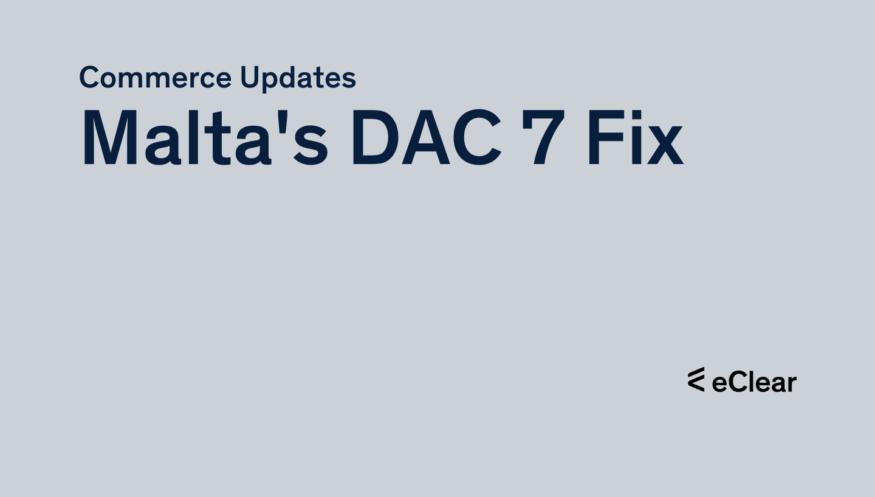The Maltese government has released version 1.1 of its guidelines concerning the DAC 7 reporting obligations for platform operators. The guidelines aim to clarify the responsibilities and requirements for platform operators in various sectors, including transportation, delivery services, manual labour, copywriting, tutoring, and legal and accounting tasks.
The guidelines specify a ‘Relevant Activity,’ excluding public-accessible transportation services operating on a pre-determined timetable, such as aeroplanes. Services provided to multiple users, like online language classes, qualify if they meet specific user requirements. Gaming or betting services are not considered ‘Relevant Activities’ unless customised according to user requests.
Seller Information
Platform operators must collect specific information for each ‘Reportable Seller,’ whether an individual or an entity. For individuals, this includes names, primary residential addresses, taxpayer identification numbers (TIN), and VAT identification numbers where available. Entities must also provide similar information.
Platform operators facilitating contracts and financial transactions must report the consideration facilitated through the platform. This includes the amount transferred to the seller’s bank account.
The guidelines also touch on the legal aspects, stating that activities carried out by a seller acting as an employee of the platform operator are not considered ‘Relevant Activities.’
India Fights Back Against EU’s CBAM

The Indian government has announced plans to protect its industries from the European Union’s forthcoming Carbon Border Adjustment Mechanism (CBAM), set to take effect in October 2023, reports northindiastatesman.com. The CBAM aims to impose carbon pricing on imports from countries lacking comparable carbon pricing systems, initially targeting sectors like iron, steel, aluminium, cement, and electricity.
The government has committed to providing financial aid to affected industries, potentially through direct subsidies or tax breaks. Additionally, India will engage with the EU to ensure the mechanism is fair and does not disproportionately harm Indian exports.
Promoting cleaner technologies is also on the agenda, aiming to reduce the carbon intensity of Indian exports and make them less susceptible to CBAM regulations.
The government’s decision has been met with approval, as the CBAM could have significantly impacted Indian exports, particularly in sectors like steel and cement. Financial assistance and diplomatic engagement are crucial to mitigate the impact and maintain competitiveness.
German companies increasingly rely on AI

According to a recent study by the digital association Bitkom, 15 per cent of companies now use AI, compared to only 9 per cent in the previous year. Despite the growing importance of AI, however, there is a discrepancy between the perception of its potential and its actual use.
68 per cent of the companies surveyed see AI as the most important future technology. However, only 20 per cent of companies considering AI important use the technology. Bitkom President Ralf Wintergerst emphasises that companies and politicians are called upon to facilitate the development and application of AI in Germany.
While companies attribute great potential to using AI in text and speech analysis, the use of generative AI, such as ChatGPT, remains low. Only 2% of companies use generative AI centrally, and 13% plan to do so.
A crucial factor inhibiting the introduction of AI in companies is regulation. Data protection requirements, legal ambiguities and lack of human resources are the main reasons for reluctance.
Despite the current challenges, three-quarters of all companies plan to invest in AI in the coming years. The study indicates that German business has recognised the importance of AI but still has a long way to go to realise its full potential.
ECJ: Tax liability for illegal withdrawal

The European Court of Justice (ECJ) clarified in a ruling of 7 September 2023 that in the event of an illegal removal of goods from a tax warehouse, the warehouse operator must pay the excise duty (consumption tax) on these goods.
The case centred on an Italian company engaged in the storage and transportation of petroleum products. The company had sent 196 consignments of mineral oils from its Italian tax warehouse to a company in Slovenia. It was discovered that 161 of the consignments contained forged documents. The Italian customs authorities estimated the excise duty due at 2,668,179 euros.
The ECJ had to clarify whether the exemption from excise duty provided for losses due to force majeure or accident also applied in this case. The Court ruled that the illegal removal of the goods from the tax warehouse did not qualify as a “loss” for the purposes of the exemption.
The ECJ emphasised that the warehouse keeper must pay the excise duty even if the illegal removal was carried out by a third party with whom the warehouse keeper has no connection. The responsibility is objective and is not based on the warehouse keeper’s fault but on his participation in economic life.
Italy permits IVA correction

The Court of Cassation has clarified that companies that make unlawful use of the VAT ceiling (IVA) can compensate for this by “Ravvedimento Operose” (voluntary self-correction).
A national company was accused of carrying out imports without VAT based on false declarations of intent. The company claimed to have rectified its situation through “Ravvedimento Operoso”. The Court confirmed that the company can correct its position through “Ravvedimento Operoso”. In addition, penalties and interest must be paid. VAT, penalties, and interest must be paid to correct the position. A supplementary VAT return is also required.
France Postpones New E-Invoicing Deadline

The French Ministry of Finance has announced an indefinite postponement of the deadline for the new e-invoicing system, citing ongoing discussions about the implementation dates for domestic B2B e-invoicing and e-reporting obligations.
Despite the delay, the ministry has released an expected timeline for the rollout. The first quarter of 2024 will see the release of a list of approved service providers, known as PDPs (Plateformes de Dématérialisation Partenaires). By the end of 2024, developing a government platform, PPF (Portail Public de Facturation), is expected to be completed in a qualification environment.
Throughout 2025, pilot phases will commence for companies of all sizes. The obligation to use the new system will begin gradually in 2026, with critical milestones expected in March and October, extending into 2027.







